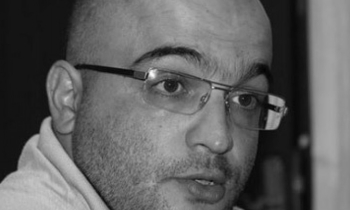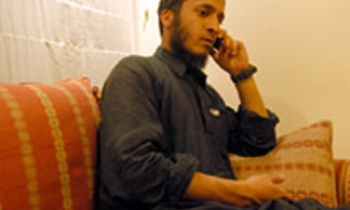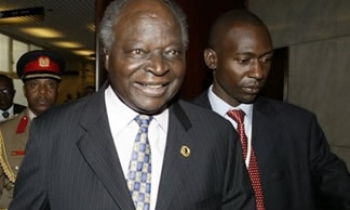The Delhi High Court's sentencing of three journalists and the publisher of Mid Day to jail terms is being seeen as a severe blow to press freedom in the country. The order has also brought into focus what ought to constitute contempt of court.
Editors of a number of newspapers and television channels in New Delhi Saturday passed a resolution calling upon both the print and electronic media to reproduce the Mid Day story and face contempt of court if it leads to that. It vowed to fight all attempts to gag the media. The editors said the journalists would be guilty only if an indepenedent inquiry against former Chief Justice YK Sabharwal found the allegations against him wrong.

The meeting was addressed by Outlook editor Vinod Mehta, Hindustan Times Delhi Chief of Bureau Vinod Sharma, CNN-IBN Editor-in-Chief Rajdeep Sardesai, Tehelka editor Shakarshan Thakur and reporter Anirudh Bahal, Supreme Court lawyer and human rights activist Prashant Bhushan, senior NDTV journalist Pankaj Pachauari, and Press Club general secretary Pushpendra Kulshresht.
Mehta said it was unfortunate that the media was being squeezed by both politicians and the judiciary. He said it was easier to tackle politicians since they were always divided, and it was more difficult to deal with the judiciary which had placed itself in an ivory tower.
The High Court on September 21 handed down four-month jail terms to three journalists and the publisher of tabloid Mid Day, for writing and publishing reports against Justice Sabharwal. A bench comprising Justice RS Sodhi and Justice BN Chaturvedi, however, granted them bail immediately — as directed by the Supreme Court two days earlier.
Noting that the four, held guilty of contempt, had not tendered apology, the bench said: “We feel, in this peculiar case, the contemnors have tarnished the image of the highest court and the sentence of four months imprisonment would serve the justice.”
The court directed Vitusha Oberoi, editor, MK Tayal, city editor, Irfan Khan, cartoonist, and SK Akhtar, the then publisher, to furnish a personal bond of Rs 10,000 each and two sureties of the same amount for the bail. All the contemnors, along with some other journalists, were present in the court when the order of sentence was dictated by the bench.
The articles and the cartoons in Mid Day purported to show that Justice Sabharwal, who was then the Chief Justice of India, may have had a conflict of interests in this matter, since his two sons were involved in business dealings with large developers building commercial malls in certain parts of Delhi. Values in these properties reportedly appreciated after the Supreme Court issued its orders shutting down commercial establishments in residential areas. The Mid Day articles were reviewed after publication and found to be factual and accurate by a group of lawyers in Delhi called the Campaign on Judicial Accountability
Veteran journalist Kuldeep Nayyar told Hindustan Times that journalists were being treated unfairly under the law in its present form. "The judgment is too harsh. There has to be some codification on what amounts to contempt of court. Anything said anywhere about judges is treated as contempt, since they are the ones who decide everything. It is unfair to others, especially for journalists," he said.
While condemning the court’s verdict, Jacqueline Park, International Federation of Journalists (IFJ) Director for the Asia Pacific, expressed the hope that the Indian justice system would exonerate the defendants on appeal. ‘‘We call upon the Indian Supreme Court to apply the principle that truth is an adequate defence in cases involving contempt of court”, said Park. The principle, though written into the Indian statute last year, is yet to be put to the test.
“A media that is restrained from reporting on matters involving crucial national institutions would be completely unable to discharge its public service functions”, added Park.
"While judges have a right to defend themselves before the courts, but there is no reason for them to abuse laws, such as the contempt of court law, to punish journalists who make embarrassing revelations," Reporters sans Frontières (RSF) said. "This ruling is a step backwards that weakens press independence and threatens investigative journalism," RSF said. "We call for the highest judicial authorities to intervene so that these jail terms for Mid-Day’s journalists are not upheld on appeal."
KS Sachidananda Murthy, Secretary-General of Editors’ Guild of India reacted, “If a journalist reported truthful matters, then he should be judged on that basis. We have been asking for a change in contempt law and the guild is again meeting next month when we will further deliberate on the issue on the basis of this judgement, proceedings in different courts.”
Indian Newspaper Society (INS) President Bahubali S Shah said that an independent inquiry should be made into the allegations and contempt charges, if any. He said public comments in this particular matter of eminent jurists and legal luminaries, some of whom have served as judges of the Supreme Court of India with distinction, have lend credence to the argument that an independent enquiry may be made into the allegations.
The National Union of Journalists (NUJ) said it was greatly concerned at the punishment given to the Mid Day journalists. "While we have great respect for the judiciary whose honour and integrity are the concern of every citizen, the issue in this case is not confined only to whether the contemnor were guilty," NUJ said in a statement.









